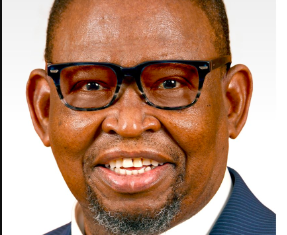Cape Town – The Automobile Association (AA) has expressed concern over the possibility of an increase in fuel levies.
This comes as Finance Minister Enoch Godongwana faces mounting pressure to provide relief for consumers in anticipation of his budget speech in Parliament on Wednesday.
According to EWN, the cumulative impact of the general fuel levy and the Road Accident Fund levy exceeds R6 per litre of both petrol and diesel in the nation.
Elevating these levies leads to elevated input expenses across diverse sectors and an escalation in prices at the point of sale, the report said.
President @CyrilRamaphosa will this afternoon attend the National Assembly at the City Hall in Cape Town for the Budget Speech as tabled by Finance Minister Enoch Godongwana.
In his budget speech the minister will update the nation on the state of the economy, public finances… pic.twitter.com/Mf0KVG74J5
— #SONA2024 | Presidency 🇿🇦 (@PresidencyZA) February 21, 2024
Samuel Seeff, the chairperson of the Seeff Property Group, has urged Godongwana to maintain the status quo on property and personal taxes.
“On the contrary, we hope that to stimulate this particular market which is important for the economy – he reduces transfer duties. In the past, raising transfer duties has held back people, it’s been an impediment to property transaction, the cost of doing business when selling and buying property is at a level that is too high in terms of taxation,” he said.
Meanwhile, the AA spokesperson, Eleanor Mavimbela, said that South Africans cannot afford to pay more for fuel, and the current levies already generate significant revenue for the government, East Coast Radio reported.
Finance Minister Enoch Godongwana is set to deliver the Budget Speech amid a myriad of demands for more social spending and service delivery issues. The growing unemployment rate is also another concern. @mbanjwax reports.
Watch: https://t.co/qSlpJPsOdo#Newzroom405 #Budget2024 pic.twitter.com/qCGDxOj2l6
— Newzroom Afrika (@Newzroom405) February 21, 2024
While not increasing the fuel levy would be appreciated in the short term, Mavimbela acknowledges that it may not be a sustainable solution.
“If we are not paying that General Fuel Levy or the Road Accident Fund levy, in essence, we will be paying R6.13 less for petrol.
“Not increasing the fuel levy definitely will be accepted, and we will be grateful for it. But we do understand that it is a short-term solution and that it is not really sustainable,” the report quoted Mavimbela as saying.
Follow African Insider on Facebook, Twitter and Instagram
Picture: X/@PresidencyZA
For more African news, visit Africaninsider.com
Compiled by Betha Madhomu


